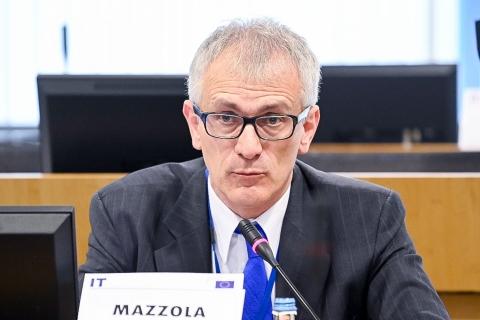European Economic
and Social Committee
Constant changes are jeopardising the completion of the trans-European transport network
Constant changes in EU Member States' domestic political priorities are a fundamental obstacle to achieving timely implementation of trans-European transport network (TEN-T) projects, and this raises doubts as to whether it will be possible to complete the core network by 2030.
The warning comes from Alberto Mazzola's information report entitled Evaluation of the Trans-European Network – Transport (TEN-T) guidelines 2013-2020, adopted at the EESC's July plenary session.
The main barriers to completing the TEN-T projects include not just changes in national political priorities, affecting projects with cross-border significance in particular, but also opposition from citizens and other stakeholders. This shows that there are important social and economic issues related to TEN-T policy where civil society needs must be addressed, because only if civil society organisations are involved and consulted early on can proper follow-up be carried out and the impediments to the project's implementation be removed.
During the plenary debate, Mr Mazzola said: "We share stakeholders' doubts as to whether the core network can be completed by 2030, but we consider this target to be important in order to push Member States to work harder, and we believe that several major cross-border projects could be completed by that date. Civil society participation and monitoring of corridor and project development are fundamental to implementing the projects in the most appropriate way. Where this has been carried out at an early stage with widespread information campaigns, the projects are advancing quite well, while where this has not been done there is strong resistance from parts of the population." (mp)
